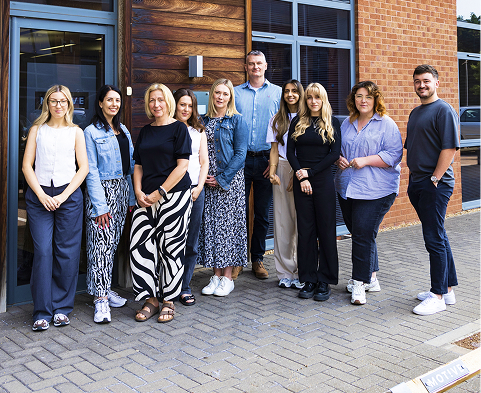Establishing a reputation as an expert in your chosen field has long been recognised as one of the most powerful marketing techniques.
Being widely quoted in the media as an expert and thought leader in your industry brings unlimited kudos and credibility. It's a strategy we use extensively at Motive to promote our clients and it's an essential element of media relations.
An excellent example of a much respected and valued ‘expert’ who appears regularly in the UK media is travel journalist and broadcaster Simon Calder. As well as travel correspondent for The Independent, he works for various other news and travel publications. For many years, he has been the ‘go-to’ person for issues such as delays, cancellations and other topics around different transport modes like airlines.
He knows his subject, keeps up-to-date with things such as pandemic travel bans, and is trusted by the media to give an insightful interview. He is also available for the majority of the time for interviews, even during evenings and at weekends. It makes him a very important contact for breaking travel news stories.
In much the same way that Martin Lewis has carved out such a niche as the nation's personal finance expert, Simon Calder has made himself indispensable as a travel and tourism expert.
Universities develop their reputation by offering ‘experts’ for comment on a wide range of subject areas. Media like interviewing professors and doctors in a particular academic discipline with a thorough knowledge of their subject area and current research topics.
You don’t need to be a working journalist, broadcaster or an academic to be interviewed as an expert. Countless companies and organisations have people with considerable knowledge who could offer insight into a specific topic to enlighten an audience.
What is an Expert?
By definition, an expert is someone ‘with comprehensive or authoritative knowledge in a particular area of study’. Formal education and certificates offer a useful start point but many disciplines don’t have a set criteria to measure expertise against. Someone working in a particular industry for years can qualify. Here is how we help develop expert reputations in different trades.
When embarking on this mission, companies can begin by identifying who their experts could be. Those with a solid background in their industry with years of experience can be considered along with any connections to work associations they may have.
People must be confident and willing to become an expert you can promote for media interviews, so it is important to provide media training where appropriate.
Next, work out ways to help these prospective experts build their marketplace profile. These can be through identifying suitable media outlets, producing thought leadership pieces, taking part in conferences as a guest speaker and developing their social media profile.
Can a speech your expert has given be transferred and reproduced for another channel, such as a blog, a video on YouTube, or a presentation on Slideshare and further promoted on Twitter, LinkedIn or other social channels?
Encourage them to get involved in conversations around their specialised subject area through comments and interactions online with other thought leaders, and share their expertise on other people’s channels such as guest blogging and cross promotion.
People who can succinctly identify their area of expertise and promote it effectively appeal to their target market and they begin to reach out to your expert for more information and respond to their call for action.
Journalists can be part of this target audience and if the expert has developed a strong reputation with their thoughts and subject insight, they can become sought after for comment and media interviews.
To find out how Motive can help you identify and promote your experts, please get in touch as we would love to hear from you.




.jpg)
.jpg)

.jpg)

